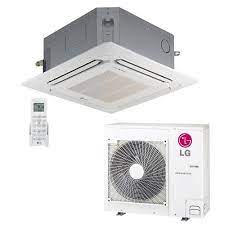Understanding the Factors that Influence Central AC Prices
As the summer heat starts to rise, the necessity of a reliable cooling system becomes increasingly apparent. For many homeowners, central air conditioning stands out as the pinnacle of comfort and convenience. However, before diving into the world of central AC systems, it is essential to understand the factors that influence their prices. From brand reputation to installation complexities, several elements play a significant role in determining the cost of a central AC unit.
Which factors affect the central AC price?
1. Brand Reputation and Quality:
One of the primary factors influencing central AC prices is the brand reputation and quality. Established brands with a track record of reliability and efficiency often come with a higher price tag. While these brands may demand a higher upfront investment, they typically offer better performance, durability, and warranty coverage, translating into long-term savings and peace of mind for homeowners.
2. Unit Size and Capacity:
Another crucial aspect to consider is the size and capacity of the central AC unit. The size of the unit should be tailored to the specific cooling needs of your home. Oversized units can lead to inefficiencies and increased energy consumption, while undersized units may struggle to adequately cool the space. A professional assessment of your home's size, layout, insulation, and other factors is essential to determine the right unit size, which in turn affects the price.
3. Energy Efficiency Ratings:
Energy efficiency has become a significant consideration for homeowners looking to reduce their utility bills and environmental impact. Central AC units with higher SEER (Seasonal Energy Efficiency Ratio) ratings tend to be more expensive upfront but offer greater energy savings over time. Investing in a more energy-efficient unit can result in lower monthly cooling costs and may qualify you for rebates or tax incentives, further offsetting the initial price difference.
4. Installation Requirements:
The complexity of the installation process can also impact the overall cost of a central AC system. Factors such as the layout of your home, accessibility to ductwork, and existing infrastructure can influence the installation timeline and labor costs. Additionally, if significant modifications or upgrades are needed to accommodate the new system, such as electrical work or duct sealing, these expenses should be factored into the overall price.
5. Additional Features and Technology:
Central AC systems come with a range of features and technological advancements designed to enhance comfort and convenience. From programmable thermostats and zoning capabilities to advanced air filtration systems and smart home integration, the inclusion of these features can add to the upfront cost of the system. However, for homeowners seeking greater control over their indoor climate and improved air quality, these additional investments may be worthwhile.
Final Thoughts
Understanding these factors can empower homeowners to make informed decisions when selecting a central AC system that meets their needs and budget. By considering brand reputation, unit size, energy efficiency, installation requirements, and additional features, you can find a central AC system that strikes the perfect balance between performance, price, and long-term value. Whether you are upgrading an existing system or installing central AC for the first time, prioritizing quality and efficiency can ensure years of reliable comfort and savings.



Comments
Post a Comment